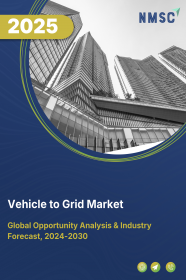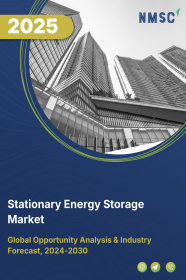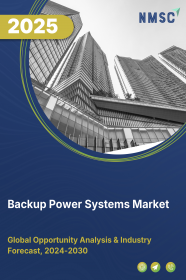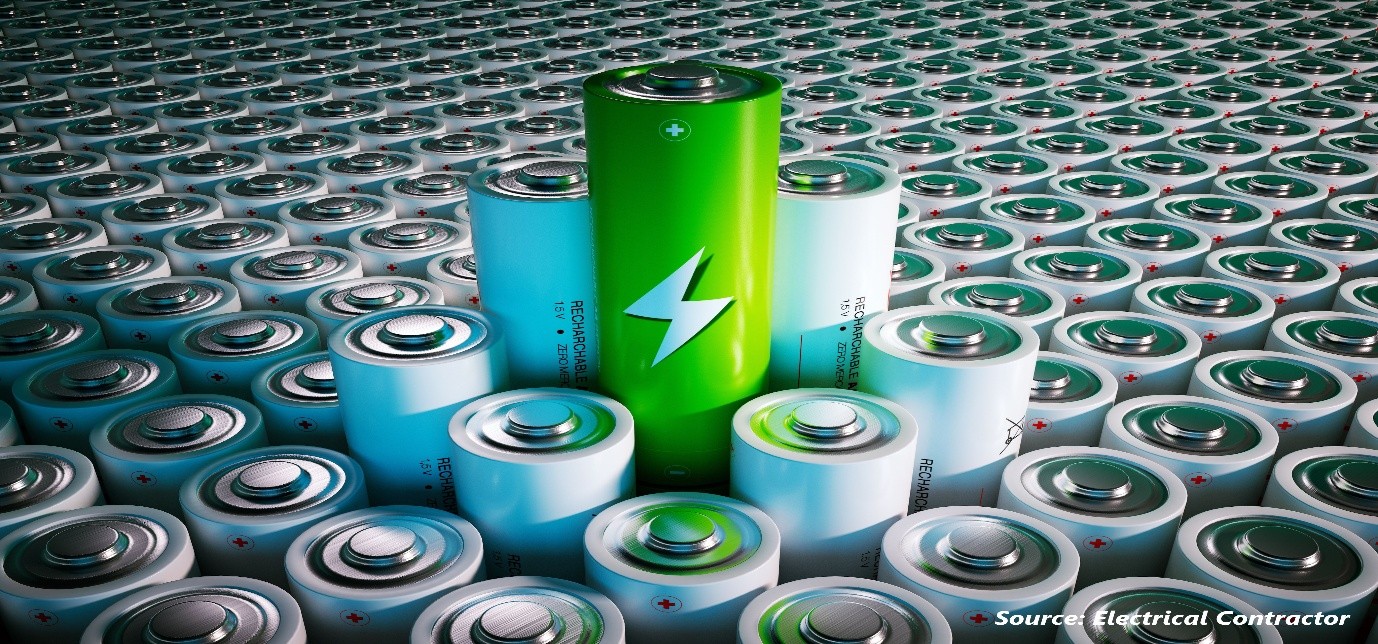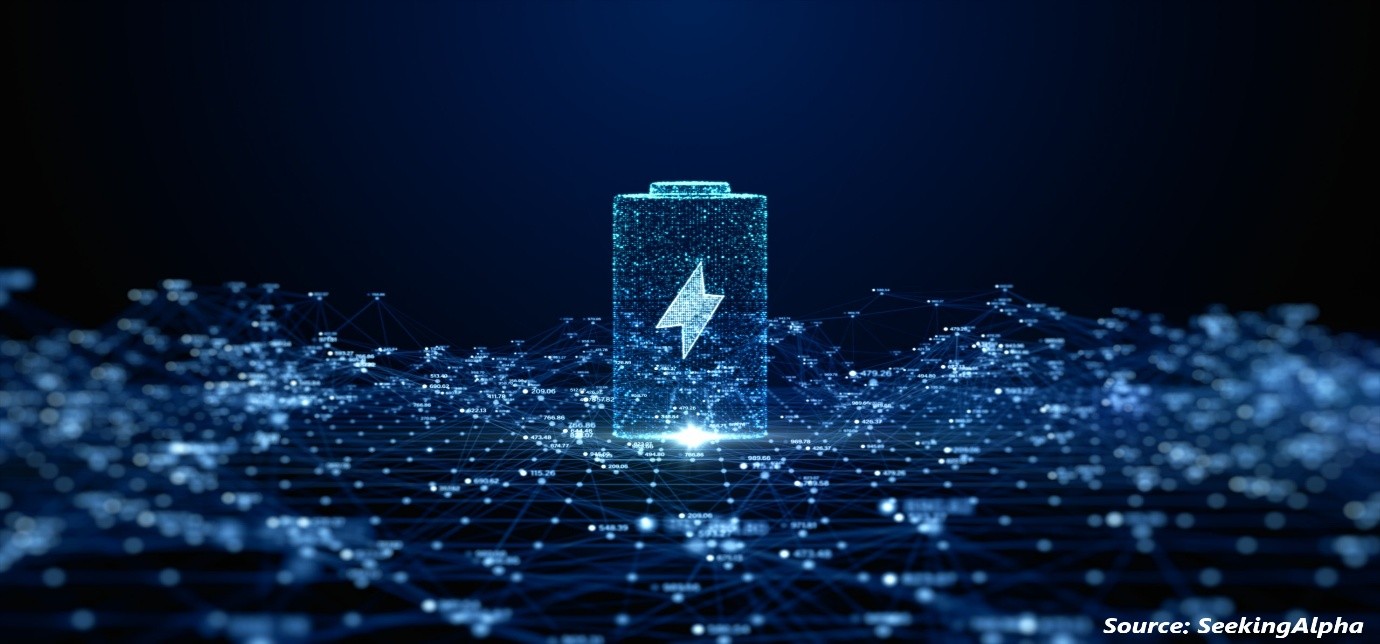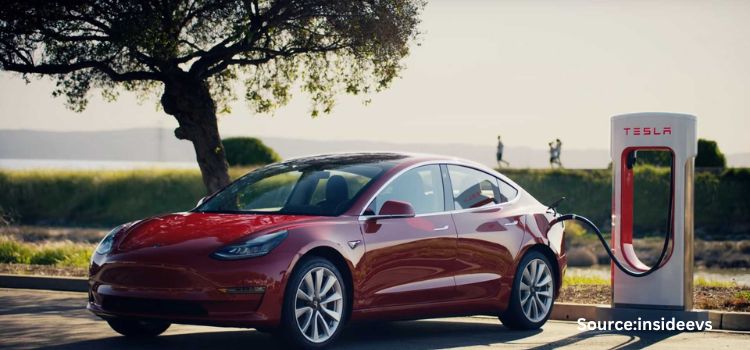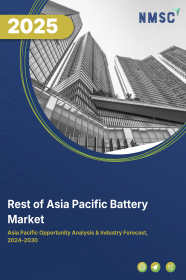
Rest of Asia Pacific Battery Market by Type (Lead Acid, Lithium Ion, Nickel Metal Hydride, Nickel Cadmium, and Others), by Application (Residential, Industrial, and Commercial), and by Power Systems (Fuel Cell Batteries, Proton-Exchange Membrane Fuel Cells, Alkaline Fuel Cells, Phosphoric Acid Fuel Cells, Solid Oxide Fuel Cells, Molten Carbonate Fuel Cells, Air Cells, Flywheel Energy Storage, Nuclear Batteries) – Opportunity Analysis and Industry Forecast 2023-2030
Industry: Energy & Power | Publish Date: 02-Jan-2025 | No of Pages: 78 | No. of Tables: 55 | No. of Figures: 27 | Format: PDF | Report Code : EP715
US Tariff Impact on Rest of Asia Pacific Battery Market
Trump Tariffs Are Reshaping Global Business
Market Definition
Rest of Asia Pacific Battery Market was valued at USD 3.59 billion in 2022, and is predicted to reach USD 11.76 billion by 2030, with a CAGR of 15.9% from 2023 to 2030.
A battery operates as a mechanism that stores energy and later releases it by transforming chemical energy into electrical energy. Typically, batteries produce electricity by harnessing one or more electrochemical cells. Batteries can be categorized into two distinct types: primary batteries and secondary batteries. Primary batteries, also known as non-rechargeable batteries, offer a straightforward and convenient energy supply for various portable electronic and electrical devices, including cameras, watches, toys, lights, radios, and more. In contrast, secondary batteries, often referred to as rechargeable batteries, possess the capability to be recharged electrically once they've been depleted. These energy storage solutions have evolved into indispensable sources of power in our daily routines. The progress of cutting-edge technologies, encompassing smartphones, tablets, laptops, solar energy systems, and electric vehicles (EVs), has ushered in the era of robust batteries capable of prolonged endurance and providing essential energy requirements.
Strategic Business Expansions Propel Battery Market in Rest of Asia Pacific
The Rest of Asia Pacific consists of Indonesia, the Philippines, Malaysia, and others. Business expansions by key players including Tesla in Indonesia drive the market. For instance, in May 2022, Tesla announced to build a battery and EV plant in Indonesia at an industrial complex in the country's Central Java province, which, in turn, is driving the market. Increase in launch of EVs in Indonesia by manufacturers increases the demand for batteries in the region. For instance, in August 2022, SAIC-GM-Wuling (SGMW) launched the production of an EV in Indonesia, named Wuling Air EV. The launch of Air EV brings major changes to the Indonesian automotive industry chain, from product research and development, and manufacturing, to marketing, and drives the battery market in Indonesia.
Philippines' Battery Market Thrives Across Industries: EVs, Consumer Electronics, and Energy Storage Systems
The batteries are used in a wide range of industries, including EV, consumer electronics, and ESS, which, in turn, propels the growth of the market in Philippines. For instance, in 2020, the Philippines imported USD 77.2 million worth of batteries, thus becoming the 27th largest importer of batteries in the world. In the same year, batteries were the 245th most imported product in the Philippines.
Battery Safety Concerns in the Rest of Asia Pacific Region
Inadequate battery handling poses substantial threats to human well-being and the ecosystem. A persisting concern involves the improper disposal of spent batteries, resulting in their accumulation in landfills. Over time, these batteries degrade, releasing hazardous materials that permeate soil and disrupt water systems, impacting aquatic environments. Components such as mercury, cadmium, lithium, and lead in these batteries compound this environmental disruption, highlighting the immediate need for appropriate battery disposal methods. Consequently, these concerns are anticipated to impede the progression of the battery market.
Introduction of Nano-Diamond Batteries (NDB) in Multiple Industries
The Rest of Asia Pacific's battery market is poised for innovation through the increasing adoption of Nuclear Diamond Batteries (NDBs) in sectors such as automotive, aerospace, and electronics. NDBs represent a revolutionary shift in energy generation and storage, reshaping traditional battery paradigms. These batteries harness energy from nuclear waste's radioactive decay, showcasing exceptional durability. NDBs' impact is molding the trajectory of the region's battery market, fueled by their compact design, versatility, cost-effectiveness, and scalability across diverse applications. Operating as advanced diamond-based alpha, beta, and neutron voltaic batteries, NDBs offer consistent, clean energy, outperforming traditional chemical batteries across a broad spectrum of uses. Thus, it is expected to create ample opportunity for the battery market in Rest of Asia Pacific.
Competitive Landscape
The Rest of Asia Pacific battery industry includes several market players such as LG Chem Ltd., CATL, Samsung SDI Co. Ltd., BYD, SKI, ENVISION AESC GROUP LTD., Gotion High tech Co Ltd, Primearth EV Energy Co., Ltd., China Aviation Lithium Battery Co., Ltd., Panasonic Corporation.
Key Benefits
-
The Rest of Asia Pacific battery market report provides a quantitative analysis of the current market and estimations through 2023-2030 that assists in identifying the prevailing market opportunities to capitalize on.
-
The study comprises a deep dive analysis of the market trend including the current and future trends for depicting the prevalent investment pockets in the market.
-
The information related to key drivers, restraints, and opportunities and their impact on the market is provided in the report.
-
The competitive analysis of the market players along with their market share in the Rest of Asia Pacific battery market.
-
The SWOT analysis and Porter’s Five Forces model are elaborated in the study.
-
Value chain analysis in the market study provides a clear picture of the stakeholders’ roles.
Rest Of Asia Pacific Battery Market Key Segments
By Type
-
Lead Acid
-
Stationary
-
Motive
-
-
Lithium Ion
-
Lithium Nickel Manganese Cobalt (LI-NMC)
-
Lithium Iron Phosphate (LFP)
-
Lithium Cobalt Oxide (LCO)
-
Lithium Titanate Oxide (LTO)
-
Lithium Manganese Oxide (LMO)
-
Lithium Nickel Cobalt Aluminum Oxide (NCA)
-
-
Nickel Metal Hydride
-
Nickel Cadmium
-
Others
By Application
-
Residential
-
Industrial
-
Manufacturing & Construction
-
Automotive
-
Medical
-
Telecom & IT
-
Consumer Electronics
-
Power & Utility
-
Aerospace
-
Marine
-
Others
-
-
Commercial
By Power Systems
-
Fuel Cell batteries
-
Proton-Exchange Membrane Fuel Cells
-
Alkaline Fuel Cells
-
Phosphoric Acid Fuel Cells
-
Solid Oxide Fuel Cells
-
Molten Carbonate Fuel Cells
-
Air Cells
-
Flywheel Energy Storage
-
Nuclear Batteries
Key Players
-
LG Chem Ltd.
-
CATL
-
Samsung SDI Co. Ltd.
-
BYD
-
SKI
-
ENVISION AESC GROUP LTD.
-
Gotion High tech Co Ltd
-
Primearth EV Energy Co., Ltd.
-
China Aviation Lithium Battery Co., Ltd.
-
Panasonic Corporation
REPORT SCOPE AND SEGMENTATION:
|
Parameters |
Details |
|
Market Size in 2022 |
USD 3.59 billion |
|
Revenue Forecast in 2030 |
USD 11.76 billion |
|
Growth Rate |
CAGR of 15.9% from 2023 to 2030 |
|
Analysis Period |
2022–2030 |
|
Base Year Considered |
2022 |
|
Forecast Period |
2023–2030 |
|
Market Size Estimation |
Billion (USD) |
|
Growth Factors |
The growing government incentives The adoption of hybrid vehicles |
|
Companies Profiled |
10 |
|
Market Share |
Available for 10 companies |
|
Customization Scope |
Free customization (equivalent up to 80 working hours of analysts) after purchase. Addition or alteration to country, regional, and segment scope. |
|
Pricing and Purchase Options |
Avail customized purchase options to meet your exact research needs. |

















 Speak to Our Analyst
Speak to Our Analyst



